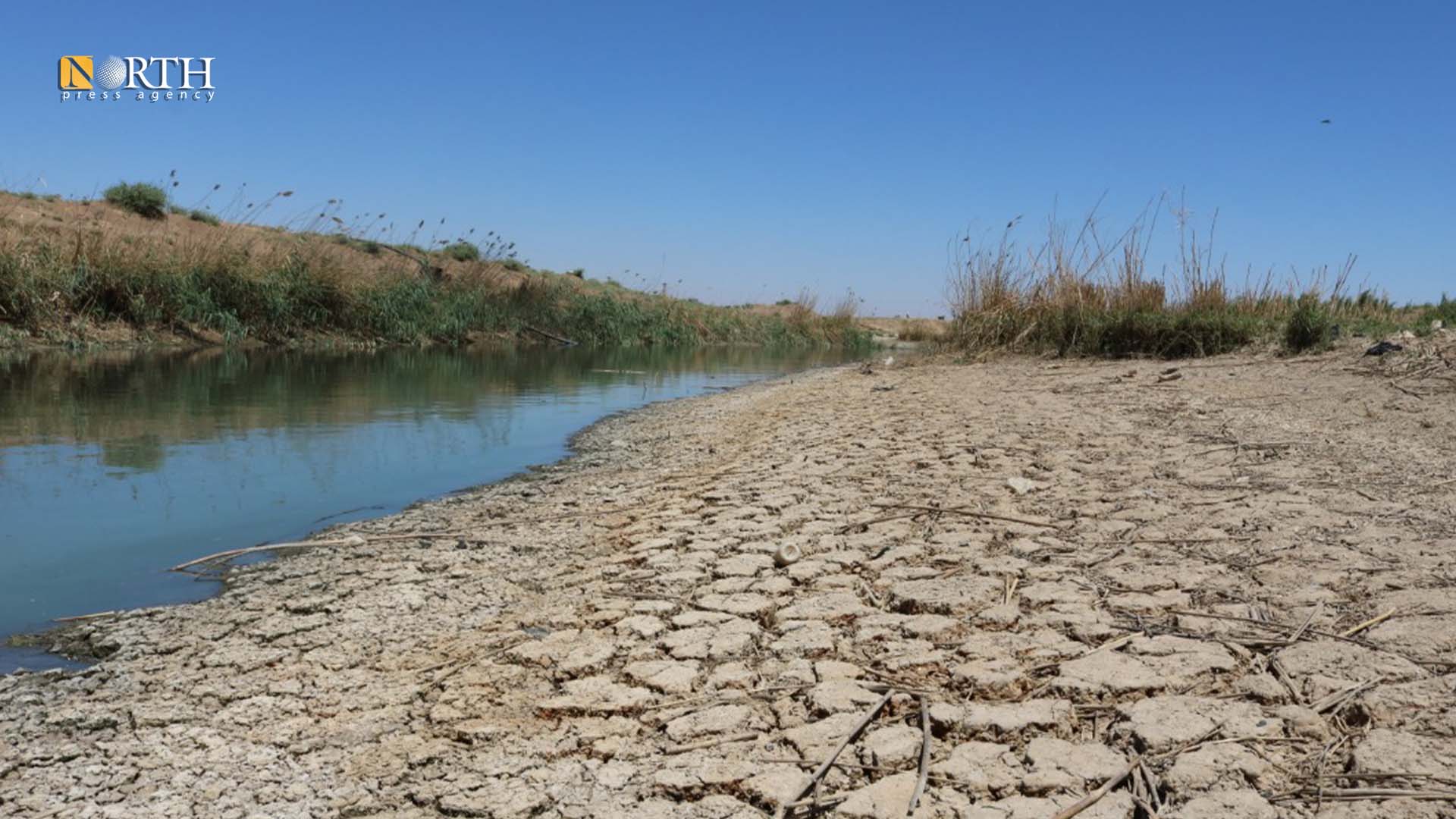QAMSHLI, Syria (North Press) – Turkey has been weaponizing water since the start of the Syrian conflict, violating international humanitarian law, and exacerbating already existing climate-linked impacts.
Tens of thousands of people of northeast Syria require access to water for personal use and to sustain their livelihoods as farmers or keeping livestock.
Since the beginning of this year, Turkey has limited the flow of the Euphrates into Syria, depriving large numbers of people of usable water. Turkey reduced the flow of water from the Euphrates River into northeast Syria’s dam gradually, reducing the amount of water received to unprecedented lows.
A research by Pax for Peace Organization, the largest peace organization in the Netherlands, has shown the depth and consequences of the water cut off on the lives and livelihoods of Syrian farmers in the country’s northeast.
In October 2019 Turkish military and the affiliated armed factions invaded the two cities of Tel Abyad and Sere Kaniye (Ras al-Ain) in northeast Syria, displacing hundreds of thousands of indigenous people.
People of the areas near the Turkish occupied areas face serious challenges regarding access to water. First in October 2019, the Turkish-backed Syrian National Army (SNA) blocked the water flow from the Alouk Water Station to Tel Tamr and Hasakah on over 20 occasions, leaving close to a million people without access to clean water.
The Turkish forces and the armed opposition factions suspended the operation of the Alouk station several times after they invaded Sere Kaniye (Ras al-Ain) in October 2019.
The lack of rain in spring 2021 also played a big rule in water levels, as Turkey limited the release of water from its dams into the Euphrates River at the border, with a recorded 70% decrease in water levels in Syria, which has severe consequences for communities depending on it, Pax said.
With lower rainfall all agricultural areas along the Khabur River faced water shortages. And the SNA started building dams along the river and blocked the water from the areas of the Autonomous Administration of North and East Syria (AANES), in order to retain water for irrigation, in total, 53.7% of the Khabur water flow between Turkey and Hasakah city was dammed, Pax organization added.
Turkey keeps water in six dams, the largest of which is Ataturk Dam, the second largest in the Middle East, with a storage capacity of 48 billion m³, violating the international agreement it signed with Syria in 1987 which stated that Syria’s share of water coming from Turkey is 500 m³ per second.
“Blocking a main river that a whole region depends on during the driest summer ever recorded in the region will undoubtedly have severe humanitarian and socio-economic consequences,” the research noted.
The length of the al-Khabour River is 320 km. It originates in Turkey and enters the Syrian territory at the city of Sere Kaniye (Ras al-Ain), passing through Hasakah, then it merges with the Jaqjaq River to flow into the Euphrates near the city of al-Mayadin in Deir ez-Zor, and then enters Iraqi territory.
Pax indicated that the floodplains along the river were cultivated with various crops, the resulting plentiful agriculture in the area made this region an important part of Syria’s breadbasket.
“The blockade of the Khabur River’s water flow by the Turkish-backed SNA has serious consequences for the population downstream. Taking into account both climatic conditions and further limitations of water coming in from the shutdown of Alouk water station, as well as limited flow into the Euphrates, the Khabur is an indispensable source for the survival of the civilian population.”
Cutting of essential water supplies to the civilians on northeast Syria by the Turkish-backed armed group with the intention of starving the civilians or bringing about their forced displacement during war time considered violation of the rules of international humanitarian law, PAX stressed.
The research called upon the responsible parties, including the SNA and the Turkish government to immediately stop these acts, respect international legal obligations on protection of civilian infrastructure, and commit to peaceful dialogue over solutions relating to climate-linked degrading natural resources.
Besides, it called upon the international community to develop a strategy for the region on cross-boundary water challenges, and to engage with Turkey to ensure civilians in northeastern Syria access to the river’s water.

